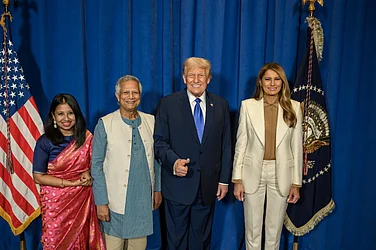Last week, Hong Kong legislators passed a new security law amid concerns from human right groups and Western governments that it would severely undermine rights and freedoms and give the government increased power to crack down on dissent.
The new national security law or Article 23 which allows authorities to charge dissenters on the grounds of alleged treason, espionage, sedition and external interference in Hong Kong’s internal affairs was passed within 11 days of being tabled, and came into effect on Saturday.
The Safeguarding National Security Ordinance adds 39 new crimes to the already existing draconian National Security Law which was passed in 2020 despite widespread protests. Since then, authorities have arrested many pro-democracy activists, lawmakers, and journalists, restricted voting rights and limited freedom of the press and speech.
Harsh penalties have been introduced under the new law, including life imprisonment for crimes endangering national security, treason, and insurrection. It also includes penalties of up to 20 years for espionage and sabotage, and 14 years for external interference.
International human rights groups have criticised the law for being too broad, with vague definitions that could lead to harsh punishment for all acts of dissent against Hong Kong authorities or the Chinese government.
Describing it as a “historic moment”, Hong Kong leader John Lee said the law's passage would enable the city to focus on economic growth. In an earlier statement, the Hong Kong government reassured visitors that they shouldn’t be threatened by the new law so long as they "do not engage in behaviours and activities endangering national security."


























